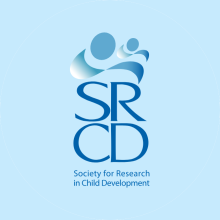December 2009 Spotlight on the SRCD Policy Fellow: Diana Tyson, Ph.D.
I am currently in the middle of my second year and serving as a fellow in the Office of the Assistant Secretary for Planning and Evaluation (ASPE), in the Division of Child and Youth Policy within Human Services Policy. I spend much of my time working on areas related to adolescent risk, with an emphasis on risky sexual behavior. As teenage birth rates have continued to climb for the past two years and the rates of sexually transmitted infections (STIs) are dramatic among adolescent populations, both teenage pregnancy and the transmission of STIs continue to be important policy issues within the Department. It has been exciting to work on a policy area that receives much attention.
During my first year, I spent much of my time developing new research agendas and creating proposals for two projects that I now co-supervise. The first is a contract to explore the influence of new forms of media (i.e. social networking websites, mp3s, and cell phones) on teen sexual activity. The second contract is a project that will examine how parenting practices and strategies across development influence sexual activity in adolescence. It has been exciting to take a lead role as a project officer for each of these projects. In early January, I worked to develop the budget proposal for the projects, as well as a statement of work to be submitted to the potential contractors. This year, both projects are underway and I am working with the contractors to survey the literature and develop a plan for next steps.
I have been working on several policy-relevant assignments since the start of my second year. Another major project I have been involved in is coordinating HHS offices that aim to prevent teen and unplanned pregnancy. As a major role of ASPE is to convene other HHS offices, I have been able to assist in efforts to facilitate collaboration and a working relationship between the offices that conduct research and provide funding for teen pregnancy prevention. Some of these offices include the Office of Public Health and Science (OPHS), the Administration for Children and Families (ACF) and the Centers for Disease Control and Prevention (CDC). Because the current Administration has proposed a new Teen Pregnancy Prevention Initiative, policy officials are increasingly interested in the manner in which the human services and public health perspectives work together to deliver evidence-based programs to youth. In this effort, my role has been to help coordinate a workgroup composed of staff from the above agencies to jointly map out strategies for implementing the new initiative.
I have benefited immensely by participating in the Fellowship program. At the close of my graduate training, though I left with expertise in specific areas, I did not have a handle on issues related to child and youth policy from a broad perspective. Within this brief period, I have been able to widen my research expertise to include a more comprehensive look at adolescence, including aspects of both positive trajectories for youth and trajectories for youth that engage in risky activities. I have been able to delve into an array of topic areas and understand how research and policy shape funding, services, and legislation. While I had a strong interest in policy throughout my graduate training, the SRCD fellowship has given me the skills to understand the ways that research can and cannot be used when it comes to policymaking. This has truly been a valuable experience.
